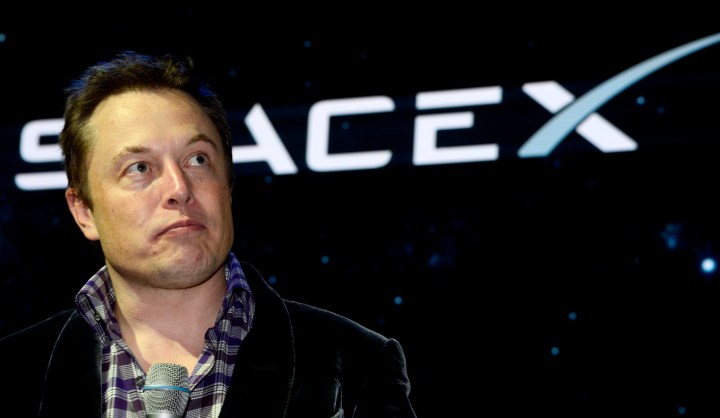Business Maverick
Op-Ed: The great mystery of the African talent diaspora

How is it possible that South Africa and other African countries produce such staggering successes, but none of the successes accrue locally? And why, for all our talk of enabling environments and supporting local entrepreneurship, are we most successful at chasing entrepreneurs abroad? By ALEXANDER O'RIORDAN.
This week South African-born Elon Musk won a heated bidding process to ferry America’s astronauts to space. Since 2011, the United States has retired its space shuttles and relied on Russian space ships to get astronauts to and from space. Elon Musk’s achievement is staggering. He effectively built a space company from scratch and while competitors such as Boeing use Russian-made rocket engines, Elon Musk has designed his own. Most South Africans have never heard of this boy from Pretoria who is a superhero in America…literally. Musk has captured the American imagination so effectively that the Iron Man character played by Robert Downey Junior is based on Elon Musk.
Musk is now one of the richest men in the world. He helped co-found Papal and upon selling it, built the first new car company in America in a hundred years. Musk founded Tesla electric cars. Again, while competitors have floundered, Tesla is not only profitable, but it has also produced the best car ever reviewed by America’s Consumer Reports (America’s highly respected review authority). Musk’s electric car drives faster than a Porsche, is quieter than a bicycle and costs mere cents to run, allowing its drivers over 400 kilometres on a single charge.
While Elon Musk’s achievements are the stuff of legend, the purpose of this piece is not really a hagiography. Arguably, the least sexy of Mr. Musk’s achievements is still being formed, and should be of particular attention to South Africa’s decision-makers because it holds the key to understanding how our government is mishandling our economic and foreign policies.
Deep in the Nevada desert, Musk is building the biggest battery factory the world has ever seen. The factory is so large it will need more graphite (a key ingredient for batteries) than is currently in production globally. In July 2014, the Financial Times reported that the world’s biggest reserves of graphite were in Balama, Mozambique. The rights to these reserves belong to a company called Syrah Resources, which is in partnership with Glencore. Glencore itself is another staggering South African success most South Africans have never heard of. South Africa’s own Ivan Glassenberg built Glencore into one of the biggest mining companies in the world, and now ranks as the fourth-richest person in Australia.
And herein lies the crux. A South African in California is changing the world as we know it. He is building an electric car empire and a giant battery factory that needs graphite mined by a South African in Australia from a deposit in Mozambique. All the value added, jobs created, technology transferred, tax collected is happening between these South Africans abroad. The South African government wants a more vibrant economy and one with more of a technological edge. While it is valuable to build new universities, wouldn’t it make as much sense to reach out to Mr Musk and hold him up as the role model that most of America does? More importantly, where is the South African government in asking why South Africans are not able to benefit from the Mozambique graphite-to-battery supply chain? And how is it possible that we produce such staggering successes but none of the successes accrue locally?
Frankly speaking, the Department of Trade and Industry should be answering to Parliament on why all its talk of enabling environments and supporting local entrepreneurship is so successful at chasing these entrepreneurs abroad. As importantly, the strategy makers in the Department of International Relations and Cooperation (Dirco) should be held to account for missing the opportunities in Mozambique. Instead of wasting time and resources on Burundi and South Sudan, it is time for Dirco to help South Africans compete where the available opportunities are. It is ludicrous that an Australian mining company is able to out-compete South African ones in a neighbouring country like Mozambique. DM
Photo: Chief Executive Officer of SpaceX Elon Musk introduces the SpaceX Dragon 2 space craft at unveiling ceremony in Los Angeles, California, USA, 29 May 2014. The Dragon 2 space craft is designed to ferry humans into space. EPA/PAUL BUCK



















 Become an Insider
Become an Insider